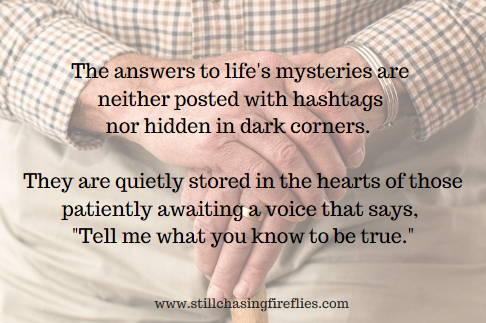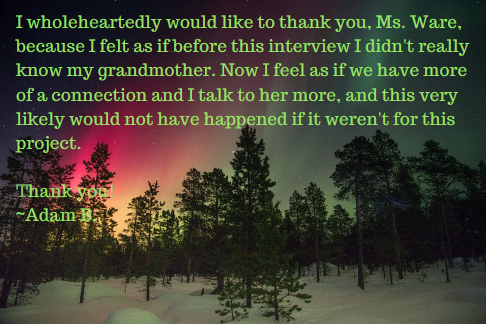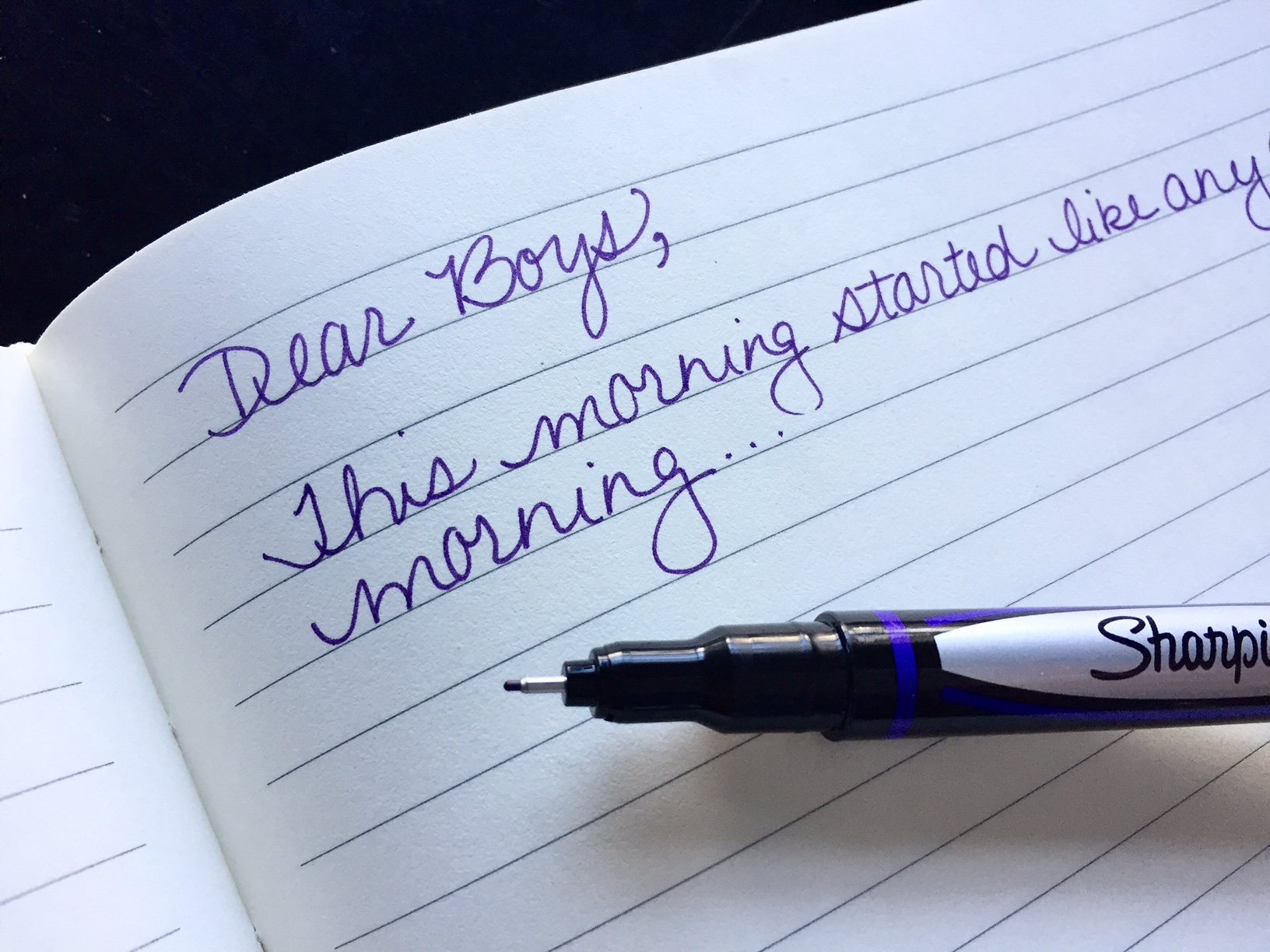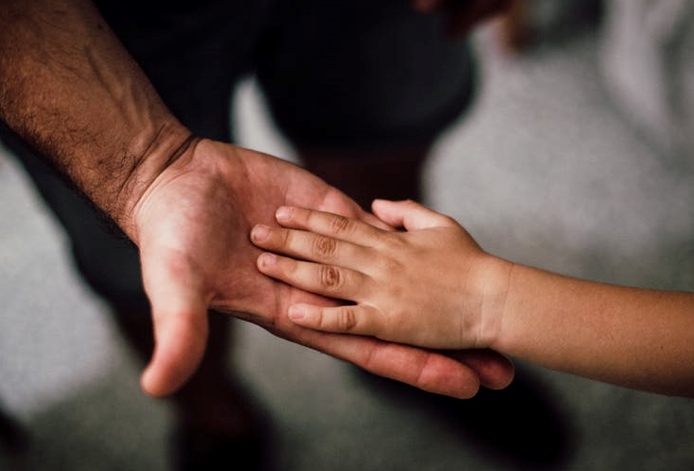
*Note: This is a challenging post, both to write and to read. I hope it will bring something new to the conversations you are already having. Please be prepared for crude language in the first section.
I. You Park Like a C***
Let me tell you a story.
Several months ago, a friend of mine shuffled her two young children into a local restaurant to celebrate her daughter’s soccer season with the team. The families laughed. They shared stories. They ate tacos. It was a happy occasion, a short reprieve from the stresses of school and of life. When the event drew to a close and my friend returned to her minivan with her kids, she noticed that a folded piece of paper had been slipped onto her windshield. Maybe one of their soccer friends had forgotten to tell her something, she thought. When she unfolded the scrap of paper, she found this message, scrawled in pencil: You park like a cunt. Her mood quickly shifted. She surveyed the area to see if someone was watching her, to make sure that they were safe. She loaded her kids into the car and headed home, but she was rattled to her core. Who does something like that?
Later that evening, I saw that she had posted about her experience on a private Facebook page for people who live in or around her community. She had included a photograph of the note – the visual evoked a powerful emotional response – and wrote a heartfelt message that our community can do better. The note on her minivan was alarming and unacceptable, but it had prompted a valuable conversation about kindness and respect with her family, and she hoped that sharing this story would remind other local families to have this conversation, too.
Her post had generated an unusually high number of responses. I was proud of the way we rally around one another to defend what is right. I was proud of us, proud that her message had garnered so much support from the community.
Except it hadn’t.
At first, the comments were kind and appropriate: “I’m so sorry this happened to you” and “This is totally unacceptable” and “We don’t want this kind of behavior in our community.” A doctor who works at a local hospital noted that she had seen people in the ER who had been shot in similar situations; there is danger in treating people this way. Some empathized, imagining how they would feel if their teenage daughters or their wives or their mothers had found notes like this on their cars. But it didn’t take long for the conversation to turn on my friend, who had RECEIVED the vulgar note. First, people justified the note: “I would like to see a picture of how badly you parked.” “How bad do you have to park to get a note like that?” Then people blamed her for being afraid or offended: “It’s just words. What’s the big deal?” “Words don’t mean anything.” “Why are you letting this bother you?” Then people questioned her parenting: “What kind of mother would let her kids read a note like that?” The downward spiral continued. At one point in a comment thread, a woman actually said something to the effect of “I hope her daughter gets your daughter’s spot on the soccer team.”
ARE. YOU. KIDDING. ME?
This conversation happened on a private Facebook page for people who live in or near one of the most affluent, highly educated cities in the state of Ohio. And there was only one appropriate response to a person (male or female) leaving that note in those words on a family minivan for any reason: “That never should have happened.”
If we cannot agree on that, can we agree on ANYTHING?
II. Razor Burn
I am eating my cereal and catching up on the morning news on the Today Show. They share a new Gillette ad that is generating some buzz. After airing the ad, the newscasters raise their eyebrows and nod approvingly. I, too, feel a warm glow inside from the positive message. This is huge, I think to myself between bites of toasted oats and dried berries. We are – WITH INTENTION – showing boys like my own sons what behaviors are unacceptable (the beginning of the commercial) and what behaviors are acceptable (the end of the commercial) in a society where the messages we have been sending them have been horribly blurry. I see a beautiful depiction of masculinity, with Terry Crews, the picture of traditional masculinity with his physical strength and confidence, as the ambassador of male kindness and accountability, as well. I see the message that masculinity is being kind and strong and confident and courageous and respectful and responsible and brave. There are MANY, MANY challenging political and social issues with valid arguments that I understand on both sides, but this commercial is something we can all agree on. RIGHT?
The next day, the media is flooded with pictures of men across America throwing their shaving cream in the trashcan.
Is this really happening?
III. The Dukes of Hazzard
Americans are skilled at avoidance and deflection. We are trained to avoid and deflect at a young age, and the skills are honed and reinforced as we watch celebrities and politicians and public relations machines dance around the truth on a daily basis. We suspend our disbelief and accept the Photoshopped images and the “reality” television shows as authentic. We ignore biases and learn from social media that the image we convey is far more important than what is REAL.
Avoidance and deflection are our natural human reaction when faced with the parts of ourselves that make us uncomfortable. This is true of all of us, myself included. The number on the scale this winter makes me uncomfortable, so I’ve implemented a solution. Am I exercising more? No. Am I eating more carrots? Nope, I am not. My solution is easier and should work until June: I’M AVOIDING THE MIRROR. I’m wearing extra layers to hide things and avoiding that mirror like the plague.
Looking in the mirror ruins the fun of eating mac and cheese, and the truth is that I’m not quite willing to give that up yet.
Acknowledging that the Gillette ad is amazing ruins something, too. It ruins the peace of mind that comes from a belief that we are ONLY responsible for our own behavior, and whatever anybody else does, well, that’s not our business.
The Gillette commercial is also a mirror that is forcing men to strip off the protective layers that we’ve ALL built up by adulthood and take a cold, hard look at an uncomfortable reality: the way we’ve been doing things hasn’t been perfect. It has been flawed. We’ve made some mistakes. And maybe this is a reason why some really fantastic guys I know are feeling uncomfortable. Part of toxic masculinity is the belief that admitting a mistake is a sign of weakness. It’s a fear that a flaw is the equivalent of a failure, that an error is not a chance for growth but a white flag of defeat. We’ve taught our boys not to compromise. We’ve taught our boys that if you don’t win, you lose. In fact, we’ve DEPENDED ON MEN to be firm and tough and stoic and to pretend to be fearless. And that’s kind of exactly what this commercial is trying to say – GUYS, you don’t have to live by those stupid rules any longer.
My two sons and I recently stumbled across an episode of The Dukes of Hazzard. It wasn’t long into the storyline when a dashing Bo Duke blindsided an unwitting girl with a kiss as she turned around. She was surprised. So was I. I paused the show. “Wow. So…. maybe that was acceptable in the eighties? I don’t remember? But you understand that surprising an unsuspecting girl with a kiss like that is not okay, right? It’s completely disrespectful.” We resumed the show, and soon Daisy Duke was wearing even less than her famous Daisy Dukes. She stood in the middle of a country road wearing a tiny bikini to tempt some guys to pull over in order to help her cousins, who, of course, drive a car painted to look like the Confederate flag. Yikes. I had more explaining to do than I expected. As Bob Dylan once sang, “The times, they are a-changin’.”
This is what we forty-year-old adults were raised on, you guys. These are the attitudes and behaviors that were normalized for us as kids. We tend to remember a lot of not-so-great things fondly if they are threads in the quilt of our formative years. But the messaging wasn’t all good.
Like every generation before us, we have some knots from our childhood to unravel.

IV. Complicit
It’s hard to look at the people we love, the shows we love, the music we love, the movies we love, the commercials we love, the entertainment we love and realize that all of it is flawed. No one and nothing is perfect. It’s hard to look in the mirror and realize that we, too, are flawed people, that we may have somehow contributed to somebody else’s pain, that we need to change – in significant ways or in small ones. We don’t want to be considered complicit.
We now know that for many, many years the Catholic church harbored a problem of priests abusing children in the church. We also know that the vast majority of Catholic priests are selfless, generous, faithful people – yet the credibility of ALL of the priests took a serious hit when the stories of abuse came to light. And there’s a reason.
According to reports, time and time again the “good” priests chose NOT to address the behavior of the “bad” priests. They were afraid that the unacceptable behavior of one priest, if publicized, would reflect poorly on the church as a whole, so they ignored it. But by ignoring the abuse to protect the whole, THEY BECAME COMPLICIT. If they had not turned a blind eye, if they had forced the guilty priests to be accountable right away, then the good guys would have looked like good guys. In fact, they would have been MORE than innocent. They would have been heroic.
But in so many cases, that is not what happened. By protecting the group rather than contributing to positive change, the priests who were NOT engaging in abuse became tarnished themselves. They tried to separate themselves from the problem, but they became part of the problem.
This is why it is so important for men to support an ad like Gillette’s. Sometimes, there isn’t really a middle ground to stand on. When there is a societal problem and you are made aware of it, you must choose to become part of the problem or part of the solution. You choose to become complicit or heroic.
The commercial is unfair, some people say, because it puts all of the responsibility on men. Don’t women need to be part of the conversation, too? YES. YES, THEY DO. But change happens when people WITHIN a particular group begin TO PUT PRESSURE ON THEIR OWN. Women ALREADY aren’t laughing at blatantly inappropriate comments about other women. Men will stop making those comments when THE OTHER MEN AROUND THE TABLE or THE OTHER MEN ON THE GOLF COURSE or THE OTHER MEN IN THE BOARDROOM stop laughing. That is when those comments will die.
Old habits die hard. But old habits CAN die.
When the bystanders stop resuscitating them.
V. The Playground
It was a beautiful summer day. The sky was clear, a brilliant shade of blue. I was taping clues for a scavenger hunt onto objects around the playground at a local park for a back-to-school party with some friends. I noticed that a few little boys were following, tearing the slips of paper down behind me. I politely asked them to stop and retraced my path, taping the clues back where they belonged. Within minutes, the boys had torn them down again. I kindly tried to negotiate; if you will leave these notes alone for twenty minutes, then we will make sure that you can do the scavenger hunt yourselves in a little while. That will be fun for you. That didn’t work, either. So, while the playground thieves’ mothers chatted away at a picnic table nearby, we assigned parents from our party to stand beside every clue until the game had concluded.
At this point, I was livid, so when one of the same boys walked up behind my son, who was playing soccer with his friends, and spit on the back of his neck in my view, my head nearly exploded. I approached the mothers of the boys and explained what I had just witnessed, adding that it was extremely disrespectful for one of the boys to spit on my son after we had treated them kindly despite their repeated attempts to destroy our game.
The spitter’s mother was indifferent. She shrugged. “They are just kids,” she said. They finished packing their things and walked away.
My heart was heavy with both anger and sadness. What are the chances that this little boy, the one who spit on my son and was expected to take no responsibility for his behavior, will grow up to become a kind, respectful, accountable young man who respects women, or any authority at all? If that incident is representative of his upbringing, the chances are very, very low.
Some people are perpetuating the myth that an attack on “toxic masculinity” is an attack on masculinity in general – that being critical of “toxic masculinity” is being critical of manhood itself. That argument has proven to be a surprisingly effective deflection, but it’s NOT THE TRUTH. Aside from some extremists on the fringes, no one is saying that being physically strong, muscular, and athletic is toxic. No one is saying that being competitive, hardworking, and assertive is toxic. No one is saying that protecting others by being a police officer, a firefighter, or a soldier is toxic. That is not toxic masculinity – so just stop spreading that nonsense. The reality is that even though we have MILLIONS of amazing and wonderful men in our country who are tough and strong and brave, we also have a serious problem with men involved in gun violence, domestic violence, and drugs. We have a serious problem with men who will not seek help for mental health concerns, men who weren’t taught to deal with stress and emotions, and men who are not financially or emotionally supporting their children. That stuff – it’s toxic. And it’s not just a toxic pill that those guys swallow. It’s a toxic gas that drifts through the air, exposing families and communities to the ill effects.
The truth is that we women, like the mom at the park, contribute to toxic masculinity by the things that we say, the behaviors we allow, and the entertainment that we provide for our sons. And, guys, we know that toxic femininity is a thing, too. It’s only fair that we also call out our own. Victoria’s Secret models aren’t doing women any favors. We do need to hold other women accountable for choices that negatively influence the beliefs of our daughters and our sons, and we need to stop defending women whose behaviors contribute to the objectification of women.
But accepting some responsibility on our end doesn’t let guys off the hook. Those boys on the playground needed mothers who would instill empathy and accountability. But they also clearly needed some solid male role models who would influence them positively and who would encourage the other men around them to have a positive influence, too. Maybe there will be another man who will make the difference – a teacher, a coach, a neighbor, a religious leader, a friend. Maybe.
Somebody has to teach boys like them how to be masculine without being toxic.
And the more pressure that men are putting on one another to be better, the more secure and confident all of our boys will become.
VI. The Wrong Side of History
This week as our nation celebrates Dr. Martin Luther King Jr. Day, many students across America will read two important historical texts. The first text, “A Call for Unity,” is a plea written by eight white clergymen in Birmingham, Alabama in 1963. In the text, the clergymen ask civil rights activists to stop demonstrating in their city. The gist of their letter is this: Although we do not support hate, your demonstrations are disrupting our peace, so we think you should be patient and give the court more time to work this out. In so many words, the clergymen said we aren’t against you, but we aren’t going to help you, either. They were trying to walk a very fine line between not quite being racist and not quite NOT being racist, if such a line exists.
The second text is Dr. Martin Luther King Jr.’s brilliant and much more famous response, his “Letter from Birmingham Jail,” in which he effectively tears down every part of the clergymen’s plea, revealing the hypocrisy of their stance.
Those eight clergymen probably did many wonderful things while serving their parishioners throughout their careers. But the only reason anyone is talking about them in 2019 is because they signed their names to the wrong side of history. Their public plea for the “outsiders” to go away and for the insiders to be patient was supposed to deter the civil rights protests, but instead their words confirmed the NEED for demonstrations. Their letter was like a flashing neon sign that said, “WE STILL DON’T GET IT!” In fact, the only positive aspect of what the clergymen wrote is that it prompted Dr. King’s incredible response, paving the way for events that would prove other men heroic and would eventually change the face of our nation in tremendous ways.
In a similar way, the shaving cream in the trashcan last week had the opposite effect of the intent; when men reacted so harshly to a commercial that promotes positive male role models, the images of brand new razors thrown into the garbage screamed “Maybe I have the exact problem that throwing away this razor is supposed to prove that I don’t have.”
I wonder if those eight white clergymen in Birmingham, with the blessing of hindsight, would recognize that by asking the demonstrators to stop rather than joining them in the streets they were complicit in the injustices in Birmingham. I wonder if they would be embarrassed that by trying not to get involved, they actually WERE involved, and their complacence hurt people.
I wonder if the letter they wrote to their community and their place in history might have been different if they could go back in time.
I wonder if they would have been brave enough to join the protests instead of criticizing them.
I wonder if they would have been heroes.
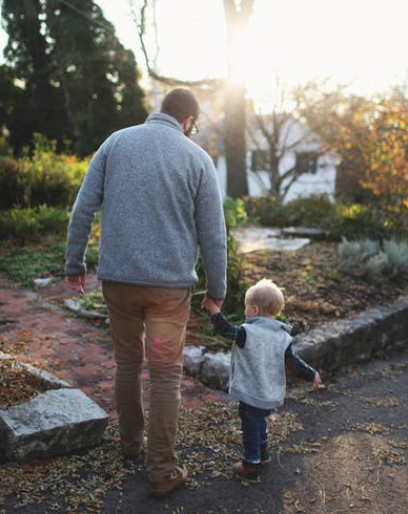

![]() and last
and last ![]() on the very same day.
on the very same day. ![]()
![]()










